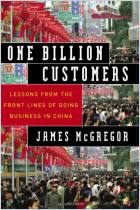
America's Response to China
A History of Sino-American Relations
Read or listen offline
Amazon KindleRecommendation
Foreign relations historian Warren I. Cohen does a masterly job of condensing more than 200 years of Sino-American history (up to the Clinton administration, so not including today’s complex fiscal ties) into a brief, readable book. For the most part, his approach is factual and reportorial – Cohen avoids grand sweeps of theory and interpretation. However, to the untrained eye, this book may seem quite confusing: Cohen uses the Wade-Giles system of romanizing Chinese characters, rather than the more familiar pinyin system, and his organization of historic material is only very roughly chronological. Readers will nonetheless acquire a strong sense of the important themes, the major evolutionary stages and the prominent figures involved in the development of Sino-U.S. relations. getAbstract recommends this retrospective account to anyone with a professional, non-academic interest in the history of America’s relationship with China.
Summary
About the Author
Warren I. Cohen is an historian of America’s foreign relations. He specializes in U.S. relations with East Asia.

















Comment on this summary or Iniciar a Discussão